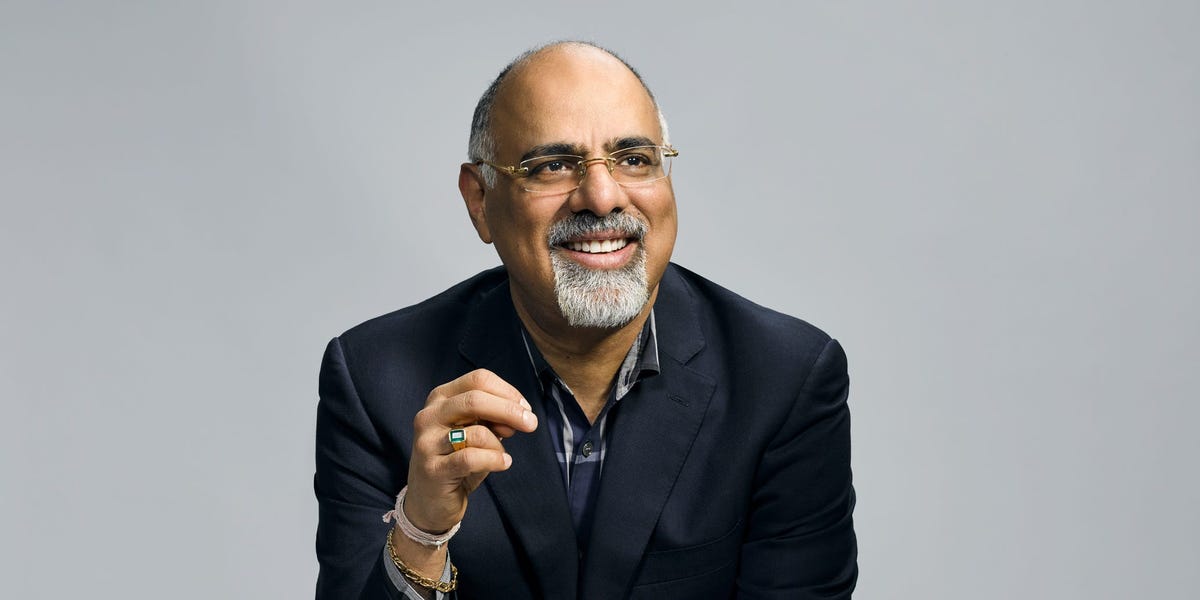- In his first column for CMO Insider, Mastercard CMO Raja Rajamannar surfaces the four biggest challenges that are facing CMOs.
- Digital disruption, the downgrading of the CMO role, and talent acquisition are among the issues he describes.
- Rajamannar says marketers need to embrace “whole-brain thinking” in order to assimilate the changes and grow the function.
I believe there is no better time to be a marketer.
Yet, as an industry, we’re facing any number of challenges that threaten the very essence of what we do and how we do it. It’s this intersection—as detailed in the five areas below and far more—that I’ll cover in depth in future CMO Insider columns.
First, we face an existential crisis. CMO roles are getting eliminated, with key responsibilities getting parsed out to next-generation titles. Chief growth officer, chief customer officer, chief revenue officer. If you take away growth, the customer and revenue, why else would marketing exist?
This is truly a marginalization of marketing. As today’s marketing leaders, and tomorrow’s, we need to revisit and revitalize the function. Marketing is not just as a brand multiplier but a force multiplier for the business, and one that can pioneer sustainable competitive advantage for the company.
Second, we are in the midst of an unprecedented disruption led by more than two dozen emerging technologies. AI is just one. We have AR, blockchain, 5G telecommunications, the list goes on. The confluence of these technologies has a profound impact on how marketing will be transformed, changing along with it nearly every facet of the relationship between a brand and its consumers.
The time for marketers to stay ahead of the game by testing and learning these technologies is now. These tools offer us a tremendous opportunity – if we truly understand how to use and maximize them. The risk if you don’t: you’ll become obsolete.
Third, marketing has a trust problem. Over the years, the field has gotten a bad rap as being deceptive and manipulative. Marketing is viewed as a con game. Meanwhile, roughly 7 out of 10 consumers (and nearly 8 out of 10 GenZers) say it’s more important to trust the brands they use or buy today than in the past. Winning back trust is essential.
We need to change perceptions. Marketers don’t need to resort to deceptive practices – such as designing or labeling products so shoppers mistakenly believe they’re getting more. People see through us from a mile away. Good, ethical marketing is critical.
Fourth, talent is an industry imperative. As I see it, there are classical marketers and contemporary marketers. They don’t seem to cross over. Classical marketers excel at areas such as psychology and sociology, creative design and brand positioning. Contemporary marketers are more performance driven, focused on data and innovations like precision targeting. The two run on parallel tracks, but — today and into the future — you need both together.
We need to be Leonardo Da Vinci marketers! We cannot just be creatives; we need to be analytical and get ahead of the inevitable trends and emerging technologies. Embracing the art and the science, or “whole-brain thinking,” is critical to competing, succeeding and thriving into the future. Even more important, we need to teach the next generation of marketers these same skills.
Finally, science itself is changing. Neurology, behavioral economics, social sciences and other areas have seen significant evolution in recent years. These areas have been around for decades but not fully understood by marketers. Even more so, they haven’t been fully embraced.
By immersing ourselves in the latest research, innovations, and applications in these areas, we can enhance the field of marketing itself – and the work we do for our brands.
So, what path will we choose?
I look forward to navigating the future of marketing – together.
Raja Rajamannar is chief marketing and communications officer and president, healthcare, at Mastercard
Read the full article here





